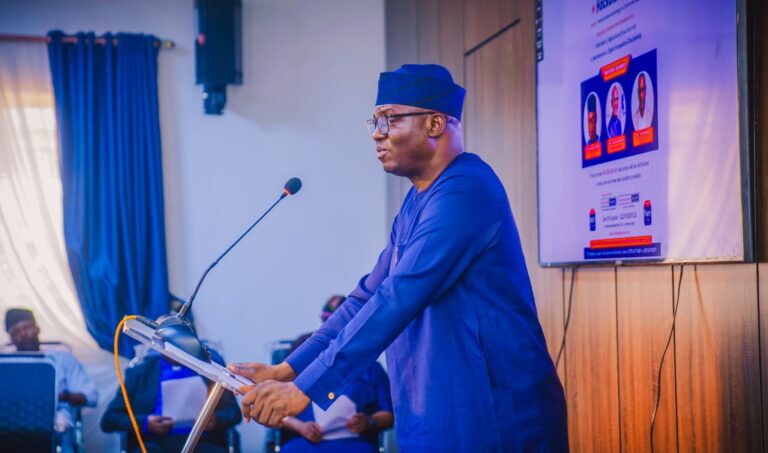By Peter Omopo
Abuja | July 27, 2025 — The emergence of Prof. Nentawe Yilwatda, a northern Christian from Plateau State, as the new National Chairman of the All Progressives Congress (APC) has stirred fresh debate over the possibility of the ruling party returning to a Muslim-Muslim presidential ticket in the 2027 general elections.
Yilwatda’s appointment on Thursday at the APC’s emergency National Executive Committee (NEC) meeting — chaired by President Bola Tinubu — followed the resignation of former chairman Abdullahi Ganduje, a Muslim from Kano, citing health reasons.
Until his elevation, Yilwatda served as the Minister of Humanitarian Affairs and Poverty Reduction. His appointment is being interpreted by political observers as a calculated move to balance religious representation within the APC’s leadership, especially ahead of the 2027 polls.
However, the decision has reignited old tensions around the controversial Muslim-Muslim ticket that brought Tinubu and Vice President Kashim Shettima, both Muslims, to power in 2023 — a pairing that drew widespread criticism from Christian groups and opposition figures.
Strategic or Symbolic?
While some see Yilwatda’s emergence as an inclusive gesture to address concerns within Christian communities, particularly in the North-Central region, others argue it may be a smokescreen to pave the way for a repeat of the same-faith presidential ticket in 2027.
Aides and commentators aligned with the APC claim that Christian representation in key appointments — from the Senate President to military chiefs — demonstrates the Tinubu administration’s commitment to religious balance.
“Muslim-Muslim presidency has given us: Senate President – Christian, SGF – Christian, Chief of Defence Staff – Christian, IGP – Christian, and now APC National Chairman – Christian. God bless Nigeria,” wrote Ashiru Pandum, aide to Senator Abdul Ningi, on social media.
Christian Leaders React
Christian leaders remain divided. While some clerics say Yilwatda’s role may help pacify religious sensitivities, others maintain that governance performance matters more than faith combinations.
Rev. Joseph Hayab, Chairman of the Christian Association of Nigeria (CAN) in the North, urged caution:
“We should not ignite religious tensions prematurely. The country faces bigger issues — insecurity, hunger, and hardship. Still, leaders must be mindful of the religious balance.”
Conversely, Bishop Francis Wale Oke, President of the Pentecostal Fellowship of Nigeria (PFN), dismissed fears about a repeat ticket:
“President Tinubu has demonstrated fairness to all. Muslim-Muslim or not, what matters is justice and development.”
Lagos CAN Chairman, Bishop Stephen Adegbite, echoed this, praising Tinubu’s track record with the Christian community:
“He is no religious bigot. In fact, what he’s done for the church may surpass what he’s done for the Muslim community.”
No Comment from CAN President
When contacted, an aide to Archbishop Daniel Okoh, the CAN President, declined to wade into the controversy, stating:
“His Eminence will not comment on political decisions. These are party matters.”
Meanwhile, the Catholic Bishops’ Conference of Nigeria urged restraint.
“Let’s observe more and conclude less,” said Rev. Fr. Michael Umoh, Director of Social Communications.
Mixed Signals Within APC
Within the APC, discussions are ongoing about whether Shettima will return as Tinubu’s running mate. Tensions surfaced last month at a North-East APC meeting, where party leaders reportedly endorsed Tinubu for a second term — but made no mention of Shettima.
Nonetheless, with Yilwatda now leading the party and former presidents like Buhari and Obasanjo known to have retained the same running mates over two terms, there’s renewed speculation that Shettima may stay on the ticket.
As 2027 draws closer, the debate over faith, representation, and political strategy appears far from over — and Yilwatda’s appointment may be just the opening move.

